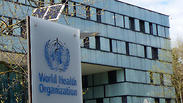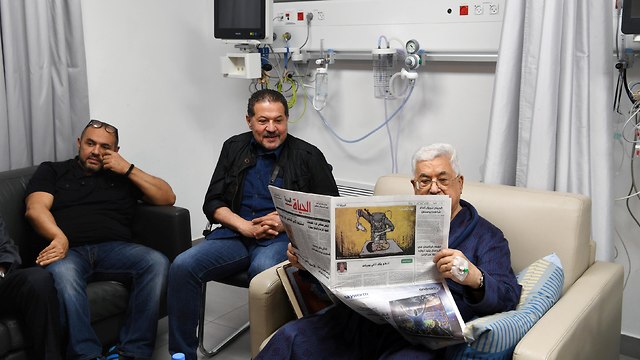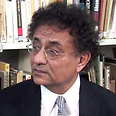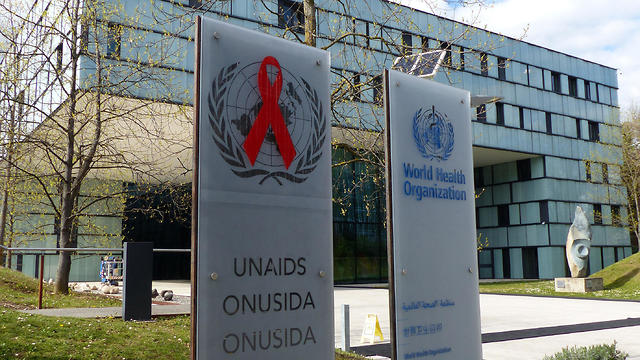

WHO, France and dabbling in anti-Semitism
Opinion: It is astonishing that World Health Organization is so concerned by impact of occupation on Palestinian health, when they have high life expectancy and low infant mortality, while the nations behind this rush to accuse Israel have a miserable public health record
It happened that just a few days ago, on May 22, the World Health Organization (WHO) convened for its annual assembly in Geneva.
On the agenda were 21 issues; 20 of them were of great importance, such as the environmental impact of polio, for example. This is a non-political organization that deals with health issues, not international relations.
But one of those 21 agenda items deals with one country and one country only: Israel. According to Article 14, "health conditions in the Occupied Palestinian Territories must be examined, including East Jerusalem and the Golan Heights."
Wow! Muslim countries, joined by countries such as Venezuela, Bolivia and Cuba, have submitted a proposal about caring for the Palestinians.
Why do just the Palestinians deserve a special item on the WHO agenda? Why is there no special item for the inhabitants of Yemen, Syria, Congo or Venezuela?
In fact, the life expectancy of Palestinians in territories controlled by Israel, including Gaza, is 72.65 years. In Syria it is 69.51 years, in Bolivia it is 67.72 years, in Yemen 63.51 years and in Congo it's 61.42 years.
Essentially, the Palestinians are in better health than the average citizens of the countries that submitted the proposal. Should they not be worrying about themselves first?
But let's continue. Israeli control of the territories began in 1967. In a previous time, when those areas were under the control of Jordan and Egypt, life expectancy was 48.7 years (according to the most prominent Palestinian demographer, Dr. Wael R. Ennab). And while the Palestinians were once well below the world average for life expectancy, they now rank higher than most of the world – including European countries like Turkey, Ukraine and Russia.
Data on infant mortality rates indicates a similar jump. In 1967, Palestinian infant mortality rates were 152-162 deaths per 1,000 births. But in the last decade, it has been less than 20 deaths per 1,000 births.

This dramatic reversal across every health-related parameter is down to extensive cooperation between health centers in the Palestinian territories and Israeli health services. This cooperation included, for example, extensive training of Palestinian physicians and treatment of Palestinian patients in Israeli hospitals.
It is doubtful that there is another population group that has undergone such a dramatic, positive change in such a short period of time. In fact, the World Health Organization should require Israel to continue this cooperation with the Palestinians, even in the event of a peace agreement.
But when incitement, hatred and politics overtake common sense and facts, we have the absurd situation in which, of all the countries on the planet, the World Health Organization concerns itself solely with a population that, according to every possible parameter, is better off than the world average, and especially in countries hostile to Israel.
In some parts of the world, the health situation is close to catastrophic. Ten million Yemenis are on the verge of starvation, and 22 million people in East Africa are in a similar state. One million people in Venezuela have malaria.
But all these mega-problems are of no interest to the WHO. The organization is continuing the tradition of the United Nations Human Rights Council, which, in 2007, decided to introduce Article 7.
This article requires the Council to discuss Israel - in fact, condemn Israel - in a permanent annual ritual. There is no such ritual for North Korea, Iran, Syria or Somalia; only Israel. This is not concern for human rights, it is an anti-Israel obsession.

Only three European countries have voted with the dark majority: France, Belgium and Sweden. Granted, Sweden and Belgium have a tradition of anti-Israel sentiment. But France? Why? Just two months ago, President Emmanuel Macron declared anti-Zionism to be a form of anti-Semitism. This was a courageous and justified statement, for what anti-Semitism did to the Jews is what anti-Zionism is doing to Israel.
It is perfectly acceptable to criticize Israel. Even the undersigned is not a supporter of the current government, far from it. But obsession is not criticism; deliberately ignoring facts is not criticism. Joining in with these dark countries is not criticism. According to the working definition of anti-Semitism, "the practice of double standards" as seen at the WHO annual meeting, is a clear expression of anti-Semitism.
France's support for the dark majority is an opportunity for soul-searching. For while it is permissible and even necessary to criticize Israel, an anti-Semitic vote, even if done inadvertently, is not the way.
This is the message I intend to deliver Tuesday to members of the French National Assembly in Paris.

















